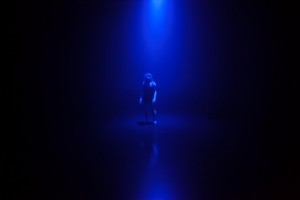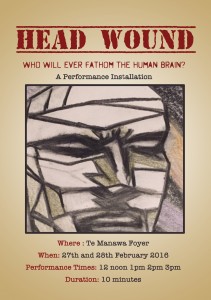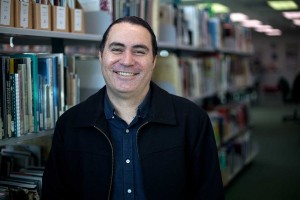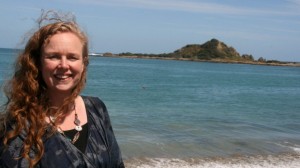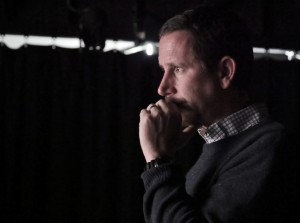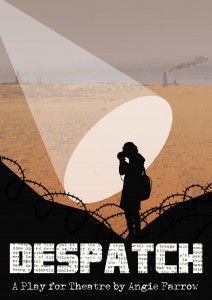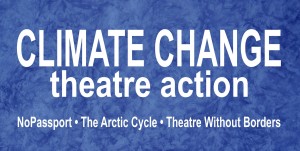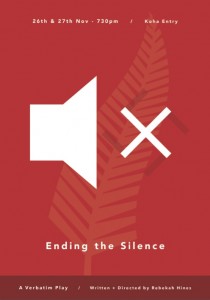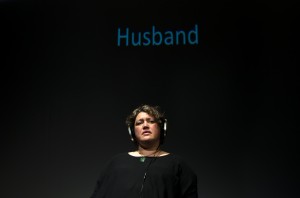“This poem is conversational“, a poem by Massey Lecturer Bryan Walpert has been selected for inclusion in Best New Zealand Poems 2015. Also selected is Massey tutor Sarah Jane Barnett. View the entire collection here: http://nzetc.victoria.ac.nz/iiml/bestnzpoems/BNZP15/t1-front1-d1.html.
2016 Commonwealth Short Story Prize Shortlist
Congratulations to the two Kiwis shortlisted for the Commonwealth Short Story Prize! Both are former Massey creative writing students. Bonnie Etherington recently graduated with a Masters of Creative Writing from Massey.
http://www.booksellers.co.nz/book-news/2016-commonwealth-short-story-prize-shortlist
Massey PhD Student and Tutor Shortlisted for NZ Book Awards
Many congratulations to Massey University student and tutor Tim Upperton. Tim is a creative writing PhD student studying under Associate Professor Bryan Walpert as well as a creative writing tutor on the Manawatu campus. Tim’s second collection of poetry, The Night We Ate the Baby (Haunui Press) has made the short list for the Ockham 2016 National Book Awards. The Poetry category’s convenor of judges, Elizabeth Caffin, says choosing a shortlist of four from the ten longlisted poetry collections seemed at first a breeze. “Extraordinarily, we all instantly agreed on three books: Roger Horrocks’ The Ghost in the Machine, Tim Upperton’s The Night We Ate the Baby and David Eggleton’s The Conch Trumpet.” See the link for the full story: http://www.booksellers.co.nz/…/ockham-new-zealand-book-awar…
NUTS NZ #9
Editorial
Welcome to the ninth edition of NUTS NZ – the Newsletter for University Theatre Studies New Zealand. The purpose of the newsletter is to help us communicate more effectively as a community of scholars interested in Theatre and Performance. We have an interesting selection of stories and items for you in this first issue for 2016. In this issue Martyn Roberts has kindly provided us with an outline of his latest project, Dark Matter. We have included a flyer and link to a newspaper article about Head Wound, directed by Angie Farrow, that should be of interest. We have details of the upcoming ADSA Conference “Resilience: Revive, Restore, Reconnect,” as well as details regarding the upcoming Symposium “Empowering Performance.” There are a few prizes and competition to note too. Unfortunately, we could not include out “NUTS People” segment in this edition but it will b featured in the tenth edition.
We plan to circulate our tenth edition of NUTS NZ on the 13 of May , and we will need items of news by 29 April (especially an academic and postgraduate student to showcase). As always, submissions should be sent to the NUTS NZ editor Jane Marshall: j.g.marshall@massey.ac.nz
| Newsletter Issue | Information Required by | Date of Circulation |
| Issue 10 | 29 April 2016 | 13 May 2016 |
| Issue 11 | 29 July 2016 | 12 August 2016 |
| Issue 12 | 28 October 2016 | 11 November 2016 |
Kind regards,
NUTS NZ editors: Jane Marshall and Rand Hazou.
Performances
Dark Matter
Martyn Roberts, Lighting Designer and Professional Practice Fellow in Theatre Studies at The University of Otago presented Dark Matter at the Dunedin Fringe Festival in March 2016. This work presented for the first time, since graduating in 2014, a public showing of his MFA Theatre Studies material. Martyn’s MFA focused on his practice as a lighting designer and in particular the development and refinement of his methodology which involves creating states or scenarios that sit at the edge of perception and understanding. This was explored through three workshops and Dark Matter, a final showing where audiences were engaged in an open and ‘meaning-making’ process creating threshold states. ‘Threshold state’ refers to a point of perception that compels the viewer to engage with an image or sound to create meaning before it vanishes. It was Martyn’s intention to create threshold states across the disciplines of light, sound and site specific space. He also used photography to bring a greater understanding to how meaning, perception and recognition occur in these threshold moments. Dark matter, as in use it here, is a metaphor to describe the unseen, intangible or emergent elements of a performance. Martyn sought to use how we experience these elements to examine aspects of his design process. He is interested primarily in visual design work that privileges the partial and the unseen in order to invite audiences to take an increasingly active role in the meaning-making process. This has long been a focus of his practice as a designer. In this project, Martyn worked to develop, refine and articulate his approach through experimenting with the design tool of light, and by corollary, with sound and space.
Head Wound
Soldiers who survive war might be considered lucky, but they can suffer lifelong psychological damage. A bold new performance work explores the human horrors of war through one man’s struggle to piece together fragments of memory and identity shattered by a traumatic head injury. This performance installation, presented at Palmerston North’s Te Manawa Museum, is directed by Massey University Associate Professor Angie Farrow in collaboration with puppeteer Leda Farrwo, digital lighting designer Luke Anderson, musician and composer Suzie Hawes, and writer John Downie.
For more information access the Massey News story here, or visit the link to the article “Installation Brings Museum to Life” in the Manawatu Standard.
Conferences
ADSA Conference 2016 Resilience: Revive, Restore, Reconnect. Update
Publication reminder
The deadline for submissions for the e-conference proceedings publication for ADSA’s 2016 Conference is rapidly approaching (12th February). The publication will be in two parts. Part One will feature academic papers that can be written and reviewed ahead of time. This part will be published prior to, and launched at the conference. Part Two will feature research that due to its nature and/or mode of presentation can only be properly represented and/or peer reviewed during the conference itself. If you wish to have your work considered for either part, you MUST prepare a submission by Friday 12th February. For Part One, this submission must be your full paper.Please note that the full papers need to closely resemble the work you will present at the conference (rather than a re-write or an extended version), approximately 3000 words in length, and follow the ADS journal style guide. For Part Two this submission will consist of a more fulsome abstract (up to 1000 words detailing research methodology, questions and influences) and a justification of why the work can only be peer reviewed properly during the conference itself as well as a proposal of how the media-rich content (if applicable) will be captured.
Peer review
All people submitting work for consideration in the publication are reminded that by submitting their work they are also agreeing to act as a peer reviewer for up to 4 other submissions at the discretion of the editors. For Part One, these reviews will be due back to the editors by Friday 4th March. All peer reviewers will be acknowledged as part of the publication. If people who are not submitting their work, wish to volunteer to be a peer reviewer, the editors would welcome your expression of interest via emailing a brief bio to them.
Conference Registration
Registration for the conference is now open.Early Bird discounts are available until Friday 29th April. For more details about the conference or to register please follow this link.
Call For Papers
Empowering Performance: Maori & Indigenous Performance Studies Symposium
Te Ara Poutama, Faculty of Māori and Indigenous Development invites proposals for papers and other presentations on the power of contemporary Indigenous performance. Here we ask participants to stake a position in a conversation about the relationship between performance and power in the development of Māori and Indigenous identities and communities.
Where: Auckland University of Technology
When: 8-9 September 2016
For further information, contact Dr. Valance Smith by emailing: vsmith@aut.ac.nz
or visit #KAHAKA2016
Prizes/Competitions
The Marlis Thiersch Prize
- The Award is open to all financial members of ADSA.
- The publication period is January to December 2015.
- There cannot be more than one article or chapter by an author nominated in a given year.
- The winner is announced at the ADSA conference.
- The value of the prize is $500.
Nominations are invited by authors, journal editors and interested scholars, specifying full reference for the work nominated and accompanied by a photocopy of the article or chapter.
The Rob Jordon Prize
Please forward nominations to Alison Richards <alison.m.richards@monash.edu>by 31 March 2016.
Create One World Through Art Competition
Outside your tertiary theatre work, are you in touch with any highschool (Yr 11-13) students studying drama? If so please spread the word and let them know they can enter a short performance into the Creative Activism & Global Citizenship Competition hosted by Massey University and NZ Centre for Global Studies. There are great prizes from UNESCO NZ for winning and commended entries. The competition aligns with NCEA achievement standards so this could be something they could do in class! We invite you to show us how creativity and the arts can contribute to global community-building, and generate creative solutions to pressing planetary issues.
#Create1world – show us how your creativity can connect the world!
If you’re in Year 11, 12 or 13, we invite you to design creative content to promote the idea of global citizenship. The theme of the competition is “create one world through art” – for young people to say, in your own way, how creativity can help us join together to solve some of the problems we face as a planet.
Competition Details
- Think about how creativity can help us better understand and resolve global problems faced by humanity in the 21st Century. Themes might include sustainability, peace, human rights, climate change, refugees, global inequality, international law or the responsibilities of multinational organisations.
- Think about what it might mean to be a ‘global citizen’. There are some research resources (including a report written by young people) on the New Zealand Centre for Global Studies website at http://nzcgs.org.nz/ but you are also encouraged to develop your own ideas about creating global unity through art.
- Check out some of the ‘inspiration items’ on the Creative Activism Facebook Page at https://www.facebook.com/create1world/
- Take your ideas and turn them into a creative output in one of the four categories below:
- Media Studies Category: ($300 first prize, $200 second prize, $100 third prize) – Produce a short (1-3 minutes) media product
- Performance Category: ($300 first prize, $200 second prize, $100 third prize) – Devise and perform a short drama (1-3 minutes) OR construct and deliver a crafted and controlled oral text (1-3 minutes)
- Creative Writing Category: ($300 first prize, $200 second prize, $100 third prize) – Produce a piece of crafted and controlled piece of creative writing in the genre of either poetry or short story
- Music category: ($300 first prize, $200 second prize, $100 third prize) – Compose and record an original song (1-3 minutes long)
- Go to the Creative Activism Facebook Page and upload your submission to the page by 17:00pm NZST on Monday May 2, 2016.
- Preliminary judging will take place following this date. A selection of submissions will be chosen as finalists and announced on Monday May 16, 2016. Finalists will be invited to perform/present at a showcase event as part of the Creative Activism and Global Citizenship Conference on July 1, 2016.
- Come along and see the finalists at the Creative Activism and Global Citizenship Conference on July 1, 2016, and participate in a global conversation about creative activism with leading international artists. Free conference registration closes on Monday June 13, 5pm. Register at this link here.
- To be held on Friday July 1 at Massey University Wellington campus from 9am to 3pm. (Highschool teachers please click here to register your school group). Join us for free lunch, free amazing inspirational creative speakers, and be there when the winners, chosen by our panel of celebrity judges, are announced!
Creative Activism for Highschool Students
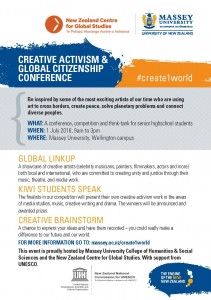 Inspired by our innovative Expressive Arts curriculum and its focus on ‘performing the change you want to see’, Massey University College of Humanities & Social Sciences and the New Zealand Centre for Global Studies are proud to present #create1world, the first Creative Activism & Global Citizenship initiative in New Zealand.
Inspired by our innovative Expressive Arts curriculum and its focus on ‘performing the change you want to see’, Massey University College of Humanities & Social Sciences and the New Zealand Centre for Global Studies are proud to present #create1world, the first Creative Activism & Global Citizenship initiative in New Zealand.
This conference, competition and think-tank for senior highschool students will be held from 9am to 3pm, on July 1, 2016, at Massey University’s Wellington campus.
If you are in Year 11, 12 or 13, we invite you to first of all to enter our competition. It aligns with NCEA for Media Studies, English, Drama and Music so we’re sure there will be a category that you can enter.
Then, come along to the conference day on July 1, and be inspired by some of the most exciting artists of our time, and hear about their work using art to cross borders, create peace, solve planetary problems and connect diverse peoples.
The day will kick off with a global linkup showcasing creative artists (celebrity musicians, painters, filmmakers, actors and more) both local and international, who are committed to creating unity and justice through their music, theatre, and media work.
Then we’ll hear from Kiwi students – the finalists in our competition will be invited to present your own creative activism work in the areas of media studies, music, creative writing and drama, and we’ll announce winners and award prizes.
Finally, join a creative brainstorm where your ideas are heard and recorded – you could really make a difference to our future and our world.
See more detail at our website massey.ac.nz/create1world
You can also follow us on Twitter at https://twitter.com/team1world or Facebook at https://www.facebook.com/create1world/
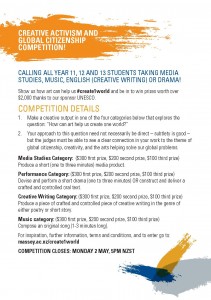 We look forward to seeing your creative entries and to welcoming you to the #create1world discussion on July 1.
We look forward to seeing your creative entries and to welcoming you to the #create1world discussion on July 1.
Writers Week – Wellington – 8-13 March 2016
Writers Week is fast approaching. In addition to every other excellent New Zealand Festival happening, from 8—13 March you can also get your fill of stimulating discussion in Wellington’s Embassy, BATS and Circa Theatres.
Packing quite some punch is the Gala Showcase: Fighting Talk on Thursday 10 March. Five writers who have never appeared on stage together before will share their personal stories on the theme of ‘rapprochement’ {noun: the development of friendlier relations between countries or groups}. Robert Dessaix, Mariko Tamaki, Etgar Keret, Courtney Sina Meredith and Sally Gardner are coming from all corners of the globe to be in Wellington, and each have a tale of conflict, and possibly also of resolution, to tell.
Writers Week includes sessions on running and the science of endurance, to genetics and brain surgery, selling books, special effects, slam poetry and magical worlds.
Visit the Festival website to see a full list of events: http://www.festival.co.nz/2016/writers-week/
Te Reo surge in latest Poetry NZ
The question ‘what is New Zealand poetry?’ is the overriding one for editor Dr Jack Ross, as he sifts through hundreds of submissions for Poetry New Zealand. His answer? We need to hear more Māori voices.
To remedy his observation that Māori poets have been overlooked in New Zealand publishing, he invited Māori poet Robert Sullivan to feature in the 50th issue and be Dr Ross’s second as managing editor of Poetry New Zealand, the country’s longest-running poetry journal. The volume includes an insightful interview with the poet canvassing a range of issues such as biculturalism, poetry and identity.
Dr Sullivan, who has Irish and Māori (Ngāpuhi) ancestry, shares his views on the ethics and entitlement of non-Māori writers using Te Reo. “I used to think if you’re not Māori you shouldn’t be using Māori terms because you don’t understand the significance, but I’ve changed my mind about that,” he says in the interview. “I think it’s better to promote the use of the language. But bringing it into poetry – well, readers of poetry can be quite pernickety. They’ll look it up, and they’ll actually deepen an understanding of Māori poetics.”
Sullivan, who heads the creative writing programme at the Manukau Institute of Technology and edited a 2014 anthology of 60 Māori poets titled Puna Wai Kōrero: An Anthology of Māori Poetry in English (AUP), says he’s discovered more Māori poets since the book was published. “The story of Māori poetry in English and the story of Pasifika poetry in English is, I think, one that still needs to be told.”
Kapa haka heralds future of Māori poetry
He says the National Kapa Haka competition, Te Matatini, represents hope for the future of poetry in Te Reo Māori. “They might call it dance, but the lyrics are all poetry. And it’s flourishing. It’s got its own spot on Māori television…it’s not just haka that are being performed, there are waiata, love songs, tangi.”
His ten new poems featured in Poetry New Zealand delve into childhood memories of growing up in Auckland, as well as tributes to his parents and grandparents.
In his introductory editorial, Dr Ross makes the case for biculturalism as an underpinning element in defining New Zealand poetry. “For all its faults and omissions and blind spots, the Treaty remains the foundation of our state, and we can’t ignore the principles of biculturalism embodied in it,” he writes.
And while he welcomes the concept of New Zealand “poetries” as a; “rich gamut of cultures and language which now exist in our islands expressing themselves in many languages and forms”, he feels that “no definition of New Zealand poetry which attempts to sideline or depreciate poetry and song in Te Reo can be taken seriously.”
He hopes more Māori poets will submit work in the future, in English and Te Reo Māori.
Poets new and established, near and far
The 286-page volume, published last November by The Printery at Massey University, comprises poetry and prose poems by some 80 poets, including well-known names Elizabeth Smither, Owen Marshall, Peter Bland, Alistair Paterson, Siobhan Harvey and David Eggleton.
New Zealand poets based overseas and newcomers to New Zealand from diverse ethnic backgrounds are all part of the line-up, with a number of contributors either based in, or originating from, Bosnia, Canada, the United States, Scotland, Australia, and Japan.
Massey University writers include award-winning poet and Master of creative writing graduates Sue Wootton and Janet Newman, and award-winning poet and PhD in creative writing graduate Dr Johanna Emeney, as well as creative writing tutors Dr Matthew Harris and Dr Bronwyn Lloyd, and lecturer Dr Bill Angus.
Essays, commentary and reviews on new poetry publications by a host of local literary talents provide incisive explorations of some of the newest voices on the New Zealand poetry scene.
Dr Ross has signalled further changes to the publication, with the next issue to be published early in 2017 by Massey University Press – a new press launched in 2015 and headed by veteran publisher Nicola Legat. To shorten the length of time some contributors have had to wait for a decision, he’s decided to confine submissions to a three-month period: from May 1st to July 31st of each year, beginning in 2016.
Dr Ross – a poet, editor and critic who teaches fiction, poetry, and travel writing in the School of English and Media Studies at Massey’s Auckland campus – in 2014 replaced distinguished poet, anthologist, fiction-writer, critic and retiring editor Alistair Paterson, who oversaw Poetry New Zealand for 21 years.
The journal originated in 1951 when poet Louis Johnson began publishing his annual New Zealand Poetry Yearbook.
Was there a stand out poem for Dr Ross? “It’s hard to single out any one person from so stellar a list of contributors, but I found the two pieces sent me by young poet Emma Shi sounded to me like messages from a strange new country I’d never visited before. She is, I believe, a powerful new talent whom I hope to hear much more from in the future,” he says.
To buy a copy, click here. Read more on Dr Ross’s poetry blog or check the Poetry New Zealand Facebook page here.
Poems
By Emma Shi
skipping dead insects across the ocean
i wake up with fists clenched. the glass shimmers
and crushes under my fingers like wings. he
cites me as the one with broken knuckles. it
is easier, he says, to remember things that way.
i start to wear creased butterflies in my hair. then
stuffed in my coat pocket, wrapped in brown paper
like a parcel. on tuesdays, i carve words into
the shore: run, flight, fog. wait, watch as the
sea chases them away, and chase it back
till i’m up to my heart with water.
the last butterfly flickers away at high tide. i practise
breathing underwater but the fish gnaw at my skull
like metal. i don’t know what i’m waiting for, i
tell him, and he says, whatever’s left. so i press my skin
against seashells, forget how to breathe again.
By Dr Robert Sullivan
Māra kai
Living on the other side of the Museum now
is the adult side. Grafton is where I was a child.
The things I know now I wish I knew then!
This sensory garden does invite the skin and ears.
I can hear the soft rain, cars swishing and thrumming,
the odd bird, splashes and drips, cool spring
on my soles even through my shoes,
the pressed warmth of the back of my left knee
on top of the right one, gentle movements
of the olive leaves, native and exotic bird calls –
some like ref whistles, others on slower patterns,
tyres like Velcro tears, birds like quiet
microwave ovens, muffled roaring vehicles,
circling wheels and spray.
I see the results of rain
by the splash of puddles, and see
the occasional drop from a leaf – that sort of rain –
the occasional cluck. The breeze
is like a big beer fridge.
The sunlight and the starlight know this.
Cosplay – it’s no different than wearing your sports team’s colours

Photo by David Mackay stuff.co.nz
EMS media studies lecturers Dr Alex Bevan and Dr Kevin Veale were interviewed for a stuff.co.nz media story about Cosplay – check out their expert commentary here:
http://www.stuff.co.nz/entertainment/74364898/the-weird-world-of-cosplay
Staging a Cause
Elspeth Tilley does the little things that many do on the homefront to protect the planet, from recycling and marching against climate change to encouraging her family to walk and take public transport.
On a global scale, though, the Massey University theatre and arts lecturer knows that many are tired of being bombarded with information and statistics about climate change.
On the eve of one of the most important global meetings, the United Nations Conference on Climate Change (COP21) in Paris, which starts on the evening of November 30 (NZ Time), her short, provocative play, Flotsam, has been accepted by the New York-based Climate Change Theatre Action group, as one of the official plays.
“Information about climate change is very depressing and leaves us all churned up, thinking the world’s going to end,” says Tilley. “The result is that people switch off. Instead, it works to reach people’s hearts and consciousness, and to help them think differently.”
Playwrights like David Geary, a Vancouver-based Maori playwright and Jacqueline Lawton, an award-winning black American playwright, are among 50 writers whose poetry, plays and songs were chosen by the action group to be performed before and during the Paris event. Not all will be held in Paris, though, and Tilley’s play is being shown in Chicago, Washington, New York and Virginia. Other productions range from living-room readings to fully produced shows, and from site-specific performances at the foot of glaciers to radio programmes and film adaptations.
Tilley says that climate change is often seen through a policy or scientific lens, and solutions are discussed only in political offices, boardrooms and negotiating halls.
Her play is based on the real-life case about a man from Kiribati – Ioane Teitoita – who was denied status as a climate change refugee and sent home. In a case which affected Tilley, the issue is battled out between a refugee application officer following the rules, and her teenage daughter, who challenges her mother about the case after following it on Facebook.
In Flotsam, the refugee officer says: “It’s not that simple, love. The law says there must be a well-founded fear of persecution causing serious harm to qualify for refugee status. Maybe there might be a cyclone causing serious harm, maybe not. But a cyclone isn’t persecution. I can’t override the wording of the law, it’s my job to apply the letter of the law. If it says definite serious harm, then I have to require definite serious harm to prove the application”.
The case of Teitoita, who was sent home, stuck with Massey Associate Professor Tilley, who says: “It’s symbolic of the system’s response. Eventually, we are going to have to welcome climate change refugees. We can’t keep turning a blind eye, treating them like an inconvenient teenager.”
Flotsam premiered here at a Massey University climate change event, Waves, earlier this month and each production overseas features local actors and directors – it’s being shown at the Institute for Excellence in American Contemporary Theatre in New York on Tuesday, chosen by Matthew Clinton Sekellick, an award-winning director. Theatre activism isn’t new to Tilley, who teaches a paper on the expressive arts, so her students have been involved in everything from a multimedia smokefree campaign on campus, to a play about GM corn.
“We emphasise artistic expression as both intrinsically worthwhile and as a means to an end. Art has aesthetic value, but it’s also powerful as a communication tool that can connect people with ideas, provoke new ways of looking at things, and create change.”
At the Waves event, Massey PhD student Sara McBride acted in the world premiere of Geary’s play, Morehu and Titi, about a tuatara and muttonbird heading for Antarctica on a floating island.
McBride, a disaster management communications specialist, has seen the effects of climate change first-hand, after working in the Solomon Islands as a volunteer communications advisor. “The Reef Islands was one of my areas, where you have 14,000 people living on coral atolls totalling 12 square kilometres. The area has eroded so much. Locals are losing their island, but they can’t leave, and it’s heartbreaking to watch.”
She says that climate change is now the most pressing issue for those working in disaster management. “It’s like, how can we fix this, or mitigate it?”
McBride also knows what it is like to live with the threat of disaster hanging above. Growing up in Washington state, she lived within 15 kilometres of the Hamburg nuclear site as her father was a nuclear chemist.
“We grew up with the threat of the nuclear plant melting down. We had to do drills regularly and we were told that if the nuclear facility went critical, we had to put a big white sheet up on our window to let the military know we were still alive.
“Working in disaster management has been a natural extension of my childhood.”
NUTS NZ Issue 8
Editorial
Welcome to the eighth edition of NUTS NZ – the Newsletter for University Theatre Studies New Zealand. The purpose of the newsletter is to help us communicate more effectively as a community of scholars interested in Theatre and Performance.
The meeting of the NZ Universities Committee for Theatre/Performance Research was held at University of Auckland on Monday 9 November 2015. One of the issues that was discussed is the status of creative outputs as part of research, particularly given the approaching PBRF exercise and the challenges we face as a community in how performance research is evaluated. Several members had recently experienced an internal institutional review of research and it was noted that while Universities acknowledge the work and value of creative outputs there is still an undermining of the value of this work in regards to the PBRF. As one member explained, its difficult to find time to write PBRF articles when much of our time might be taken up juggling teaching and directing or producing theatre productions. Although productions might count internally within universities as valid and justifiable research – some internal reviews conducted at Universities in NZ struggled to find ways to account for these creative outputs as part of the PBRF exercise. This seemed to highlight a suggestion made by Sharon Mazer at a previous meeting that was about encouraging us as a community to make sure we attend each other’s creative work and write reviews or peer evaluations that might help to critically articulate and place such work as original contributions to knowledge. We also discussed how different institutions might manage payment to individual academics who might be involved in different creative projects ‘outside’ the university. The next meeting of the NZ Universities Committee for Theatre/Performance Research will be hosted by the University of Otago next year.
This is the final edition of NUTS NZ for 2015 and it has been interesting keeping up-to-date with what our various theatre programmes are doing over the year. If you have also found the newsletter informative and worthwhile, please do take the initiative to ensure your colleagues, postgrad students, and administrators are aware of NUTS and the dates for submission of news stories and items. We are glad to report that we will be back again next year. We plan to circulate our ninth issue of NUTS NZ in mid-March 2016, and we will need items of news by 26 February. As always, submissions should be sent to the NUTS NZ editor Jane Marshall: j.g.marshall@massey.ac.nz
|
Newsletter Issue |
Information Required by |
Date of Circulation |
|
Issue 9 |
26 February 2016 |
11 March 2016 |
|
Issue 10 |
29 April 2016 |
13 May 2016 |
|
Issue 11 |
29 July 2016 |
12 August 2016 |
|
Issue 12 |
28 October 2016 |
11 November 2016 |
Kind regards,
NUTS NZ editors: Jane Marshall and Rand Hazou.
NUTS People
In each edition of NUTS NZ we profile an academic and a postgraduate student to show case “our people” and their current research/interests. In this issue we have Dr Rand Hazou and PhD Candidate Ammar Almaani, both from Massey University. As always, NUTS NZ asked each of them to answer the following questions:
- What is your research about?
- What theatre/performances have you seen recently?
- What have you been reading lately?
Dr Rand Hazou
Research: My research tends to focus on theatre engaging with issues of social justice. A large majority of the theatre I tend to write about deals with social isolation or marginalisation. I’ve written about refugee theatre, Palestinian theatre, and documentary theatre. At the moment I am trying to finnish an article on Auckland-based Massive Company (http://www.massivecompany.co.nz) and their production of ‘The Brave’ which explored stories about contemporary masculinity and male identity in New Zealand.
Theatre: In September I saw David Greig’s play ‘The Events’ which was staged by Silo Theatre at Q Theatre in Auckland. The production has stayed with me. Each night the production featured a different local choir from around Auckland, who provided musical accompaniment for the performance. It was interesting watching these ’non-actors’ negotiate the stage space and their ambiguous placement as both ‘performers’ and as ‘audiences’ to the action that was unfolding on stage. I also liked the way Beulah Koala played all the secondary characters from perpetrator of a crime, to counsellor, to passer-by, to the Lesbian lover of the main protagonist played by Tandi Wright. I liked the idea that wherever the main protagonist and victim turned, she ended up seeing the face of the perpetrator who had committed the horrendous crime that continues to haunt her. The most recent performance I saw was a promenade-style adaptation of Strindberg’s The Stronger which was staged in the bar and dressing rooms of The Basement Theatre in Auckland. Playwright Nathan Joe took inspiration from Strindberg’s one-sided conversation in the original play and developed a series of scenes exploring this device in which audiences were invited into different areas of the The Basement to ‘over-hear’ different pairs of characters confront each other.
Reading: I’m reading Urbanesia: Four Pasifika Plays (Playmarket 2012). I was particularly keen to read ‘My Name is Gary Cooper’ by Vitor Rodger which appears in this volume. I’ve also been reading ‘Out of Time Out of Place: Public Art (Now)’, which is edited by Claire Doherty (Art/Books, 2013). The book features forty works of art that intervene in some way in the social order. These tend to be works ‘staged’ outside of conventional art gallery spaces. I was particularly intrigued by the work ‘NowhereIsland’ by Alex Hartley that is documented in the book which began with the ‘discovery’ of a rocky outcrop in the arctic that had been been revealed by a retreating glacier. The artist ended up towing this land-mass from the Norwegian arctic circle to the UK where it was presented as a new Island state accompanied by a mobile embassy. The work involved 23,003 people signing up to be citizens of the new Island nations and were issued passports. The work seemed to raise really interesting questions about displacement, mobility, and what it means to be a citizen.
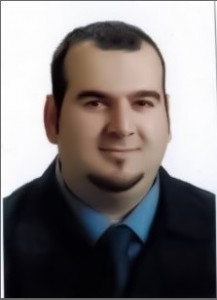
Ammar Almaani
Research: My study examines the contemporary political Arab theatre that accompanied the social and political movements of 2011, the revolutions of the so-called ‘Arab Spring’ and its aftermath. Since the Arab Spring numerous themes have been emerging in Arab theatre, particularly focusing on long-neglected issues regarding minorities, women, refugees, youth disenfranchisement, terrorism and extremism in Arab region. The aim of the study is to investigate how this contemporary Arab theatrical wave showcases and encapsulates the Arab people’s struggle against colonial and postcolonial practices.
Theatre: I have recently seen the play إكسكلوسيف (Exclusive), written and directed by Heider Mun’athir, that addresses the tragic repercussions of extremism in Arab region. Themes running through Exclusive, staged on Theatre National Mohammed V in the 7th Arab Theatre Festival in Rabat-Morocco, explore Arab people cry against the ideological terrorism of Daesh group, so-called ISIS, the psychological motives that drive a human to extremism and the role of some institutions in the creation of terrorist.
Reading: I have been reading some articles that deal with how creative dissenters, such as the Egyptian playwright Leila Soliman, have used theatre as a revolutionary tool that interrogates, scrutinizes, deconstructs, and reflects.
Publications
Despatch by Angie Farrow published by Steele Roberts
Hannah Danson is a hard-bitten New Zealand war journalist who has already served in Bosnia, Afghanistan and Somalia. Along with her photographer lover, Richie, she finds herself in a dangerous war zone covering the story of a genocide. At the heart of the story is a Catholic Nun called Sister Mala and the Sister’s involvement in the genocide drives Hannah into an obsessive quest to discover her whereabouts. The journey to find the truth takes her from observer/commentator of the war to active participant. Epic, disturbing and unnervingly funny, Despatch examines the relationship between responsibility and matters global importance, forcing us to confront our complicity in events that seem beyond our control. It is one of several of Angie’s plays that deal with contemporary issues which concern us all. It was the winner of The Pen is a Mighty Sword International Playwriting Competition run by Virtual Theatre in the USA.
Rowan Gibb’s Biography of Henry Hoyte – An Update
I am continuing with my biography of Melbourne born actor (and crime novelist) “Henry Hoyte” and his three wives, all of whom were on the stage (in England, Australia, New Zealand and America). His first wife, who made her stage debut in Australia in the 1880s and ended her career in a film with Elizabeth Taylor in 1944, was the daughter of one of the brothers who ran Hamilton’s Dioramas in England through the second half of the 19th century, and my next publication will be what amounts to a 400 page footnote on the family and their dioramas, the details of which have hitherto eluded researchers. Another brother, Harry Hamilton, was associated with one of the many “Christy Minstrel” groups who played in Great Britain from 1857 and I am putting together a complete prosopography and itinerary of all these groups and their tours in Great Britain, Australia, New Zealand, India and the East Indies.
Performances
Waves
Waves was Massey University Wellington Campus’ contribution to Climate Change Theatre Action (#ClimateChangeTheatreAction), a series of worldwide readings and performances staged in 22 participating countries led from New York by Theatre Without Borders, The Arctic Cycle, and No Passport as part of Artcop21 – the global cultural programme of the United Nations Conference on Climate Change. Waves was the only Climate Change Theatre Action event for New Zealand. Students and staff from Massey’s theatre studies and expressive arts programmes entertained, consoled and confronted their audiences with works humorous and intense, problem-illuminating and solution-focussed, powerful, sometimes funny, sometimes catastrophic, often moving and inspirational. The works included exciting new world premiere short plays from David Geary (https://en.wikipedia.org/wiki/David_Geary), Jacqueline Lawton (http://www.jacquelinelawton.com/bio.html) and E.M. Lewis (http://emlewisplaywright.com/). Our own English & Media Studies creative communication tutor and NZ playwriting star Phil Braithwaite (http://www.playmarket.org.nz/playwrights/philip-braithwaite) gave a reading from his new work, The Atom Room, plus we launched some brand new talents. See more at: http://sites.massey.ac.nz/expressivearts/2015/10/13/waves-climate-change-theatre-action/#sthash.l54ZwNlF.dpuf
Two Postgrad Documentary Theatre Projects:
Ending the Silence
Barrier Ninja: A verbatim play about hauora by Fran Kewene
This show was developed as the performative component of Fran Kewene’s Masters of Arts, in Theatre Studies at the University of Otago. The question being asked was; ‘how can verbatim theatre be used to document and then represent people’s experiences of hauora?’ Kaupapa Maori has been foundational to the examination, exploration and has guided the re-presentaion of people’s experiences in this solo performance. Barrier Ninja is a verbatim play about hauora based on the personal and professional testimonies of nine Dunedin people. Hauora can be translated as ‘hau’ breath and ‘ora’ life, the breath of life and health. These nine people’s conversations were recorded and then edited to create an audio score. What is unique about this form of verbatim theatre is the way the audio score is played through headphones on an MP3 player and then spoken word-for-word in the performance. This ‘headphone’ technique ensures the actor, Fran Kewene, stays true to the nine people’s vocal inflections and intonations. In rehearsal, the film of the conversations is then studied to inform the body language and gestures for the performance. This ‘headphone’ technique also makes overt the mediation process between the nine participants, the actor, and the audience. A Kaupapa Māori approach underlines the research, editing and production of this play putting Māori experiences and observations of hauora centre stage.
Teaching Positions
Teaching Fellow in Theatre Studies University of Otago
Applications are invited for a full-time, fixed-term Teaching Fellow position in the Theatre Studies programme within the Music Department. The position will run from the 1st of February to the 30th of June 2016. The main tasks of the position involve contributing to the planning and teaching of assigned papers and assessment of students’ work. As the Teaching Fellow, you should be able to teach aspects of research methodology and critical theory (ideally Marxist, Gender and Postcolonial theory, and Carnivale) for a 300-level course, and to deliver most of the curriculum of a core 200-level survey course that comprises theatre history and theory, dramatic criticism and textual analysis. You will also be expected to contribute to teaching elsewhere in the programme, preferably the 400-level Trauma and Violence in Performance paper, covering subjects such as the Eichmann Trial, Butoh and The Grand Guignol, and/or a 300-level and 400-level course on aspects of modern drama. The successful applicant will have a PhD or close to completing a PhD and will be required to show evidence of their ability to teach effectively. View the job description via the University of Otago website: https://otago.taleo.net/careersection/2/jobdetail.ftl?lang=en&job=1501622
Specific enquiries may be directed to Hilary Halba, Head of Programme, Theatre Studies, on Tel: 03 479 8925 or via email: hilary.halba@otago.ac.nz
Applications quoting reference number 1501622 will close on Friday, 27 November 2015.
